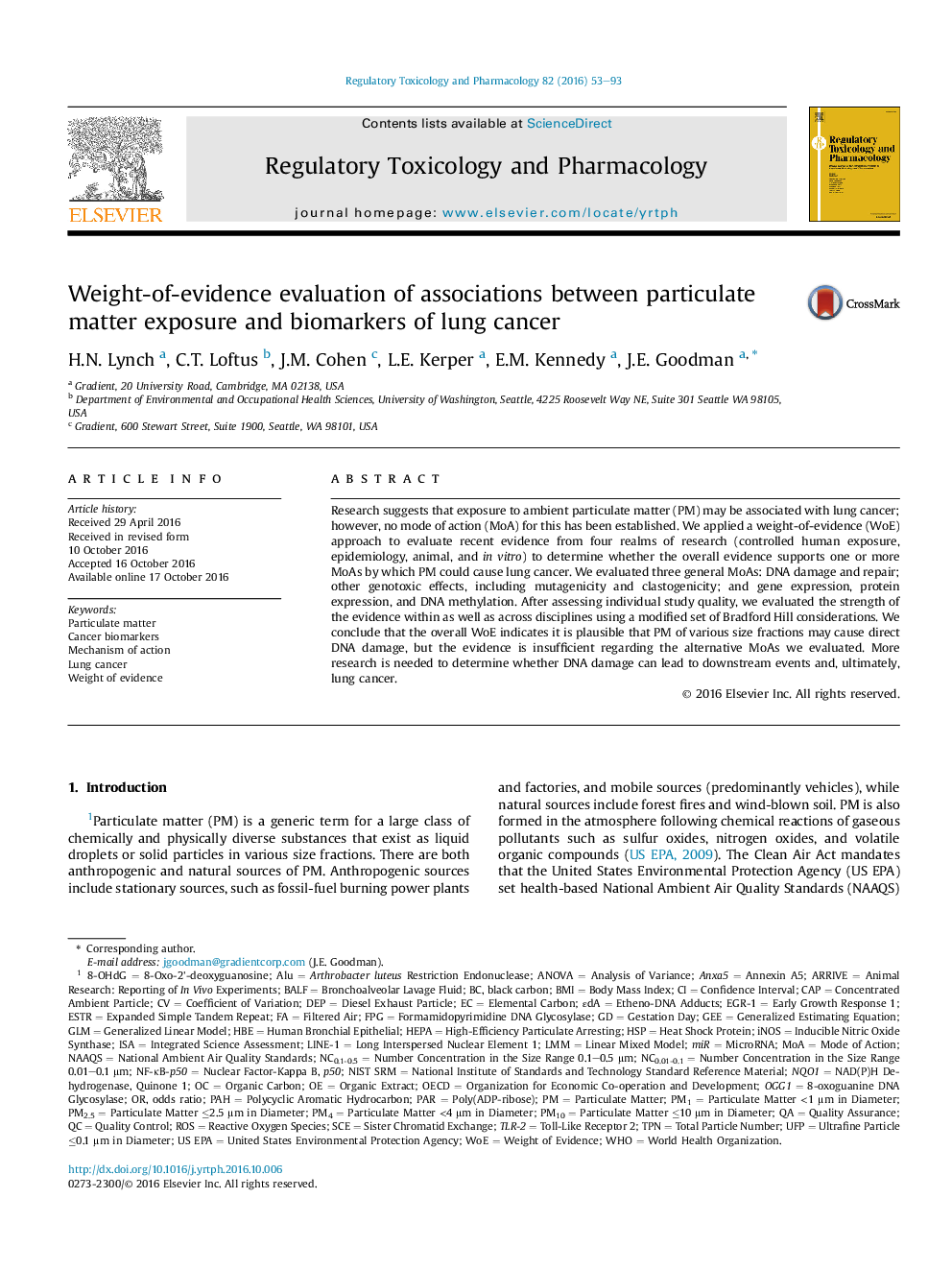| کد مقاله | کد نشریه | سال انتشار | مقاله انگلیسی | نسخه تمام متن |
|---|---|---|---|---|
| 5561303 | 1562121 | 2016 | 41 صفحه PDF | دانلود رایگان |
- PM of various size fractions causes direct DNA damage in vitro and in vivo.
- Insufficient evidence regarding other genotoxic effects.
- Insufficient evidence regarding changes in gene expression.
- There remain questions regarding reversibility and clinical significance of effects.
- There is no evidence regarding whether DNA damage induced by PM leads to cancer.
Research suggests that exposure to ambient particulate matter (PM) may be associated with lung cancer; however, no mode of action (MoA) for this has been established. We applied a weight-of-evidence (WoE) approach to evaluate recent evidence from four realms of research (controlled human exposure, epidemiology, animal, and in vitro) to determine whether the overall evidence supports one or more MoAs by which PM could cause lung cancer. We evaluated three general MoAs: DNA damage and repair; other genotoxic effects, including mutagenicity and clastogenicity; and gene expression, protein expression, and DNA methylation. After assessing individual study quality, we evaluated the strength of the evidence within as well as across disciplines using a modified set of Bradford Hill considerations. We conclude that the overall WoE indicates it is plausible that PM of various size fractions may cause direct DNA damage, but the evidence is insufficient regarding the alternative MoAs we evaluated. More research is needed to determine whether DNA damage can lead to downstream events and, ultimately, lung cancer.
Journal: Regulatory Toxicology and Pharmacology - Volume 82, December 2016, Pages 53-93
